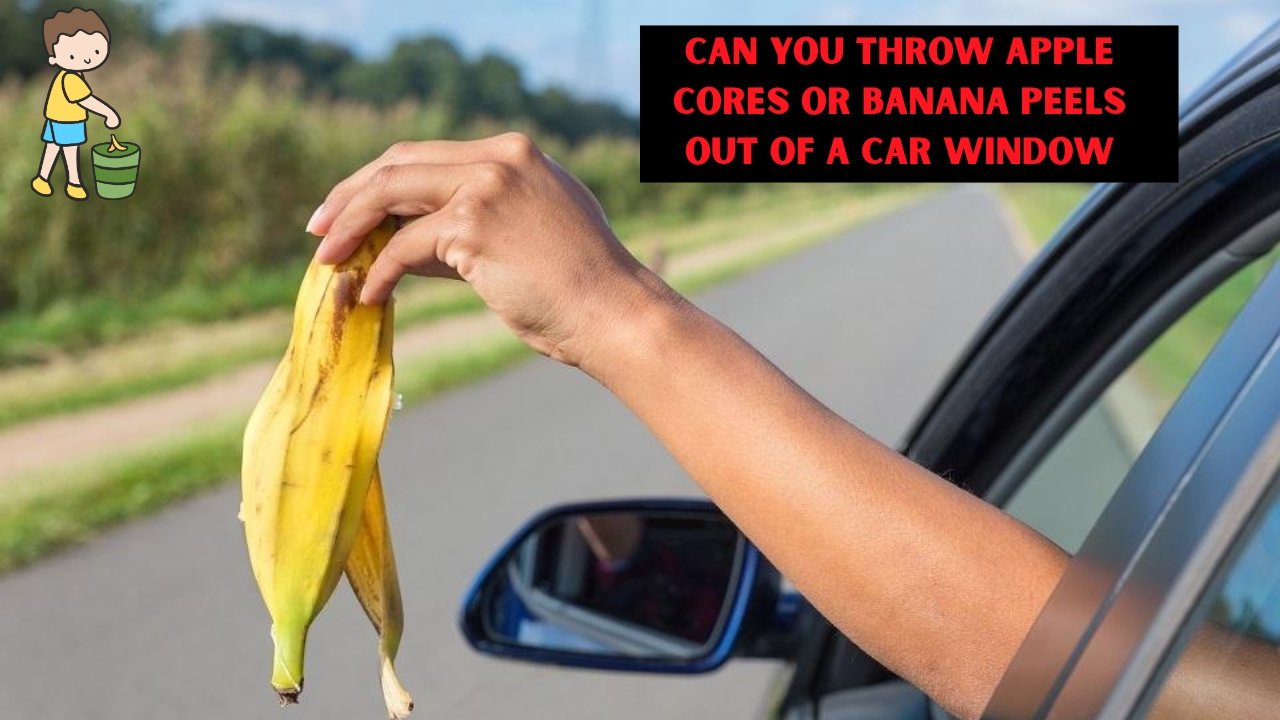Even peeling the core of an apple or a banana after driving and disposing of them through a car window, might not sound dangerous but in most instances, it is regarded as littering that is prohibited by law. Although these food scraps are biodegradable, any disposal of waste on the roads is usually regarded by law as littering, and can attract fines and other forms of punishment. This is not only violation of the law but it is also hazardous and unsafe to the environment.
Common Penalties and Enforcement
Penalties for littering food waste vary across jurisdictions but usually include fines. For instance:
| Location | Penalty for Throwing Food Waste from Car Window |
|---|---|
| Maine (USA) | $100–$500 fine for first offenses; possible community service for repeats |
| South Australia | $289 fine plus additional levies for littering food scraps |
| Virginia (USA) | Misdemeanor with fines up to $2,500 and possible jail time |
There are legal consequences of disposing of food waste through cars.
Most localities including some states in the US, Australia, and portions of the UK outlaw all vehicle littering in spite of the biodegradability of the item. To take a case in point, the disposal of banana peels or apple cores in cars is clearly a criminal offense in such states as Maine and California, punishable by fines of up to 100, 500, and beyond. The drivers are usually charged with litter thrown off their cars whether individually or by the passengers. The rationale is that any litter on government land which does not belong is litter and even organic litter falls under the definition of litter.

Environmental Issues and Wildlife Protection.
Disposing biodegradable food scraps through the car window, can cause the wildlife to congregate at the road and chances of animals hitting cars are more. Animals are attracted to these food materials and this may cause accidents and life threatening encounters between animals and people. To illustrate this, the cores of apples could attract animals to highways posing dangers that have been attributed to thousands of collisions with wildlife per year. These risks can be minimized by proper disposal and can aid in the protection of animal population and human drivers.
Litter hazards as a vehicle driver.
Other than legal and environmental consequences, it is unsafe to drop objects off a moving vehicle since this will distract other road users or lead to the opposite responses. Littering whilst driving can force vehicles behind them to change direction or stop suddenly and this might cause crashes. Officials emphasize that garbage must not be thrown out of the car until it can be disposed off in an appropriate manner at the required trash dump or recycling locations.
There are better disposal options that can be used.
Rather than disposing of food scraps such as apple cores or banana peels through the car windows, one should keep the scraps in the car until they get to a proper bin or compost location. Green bins which are used in organic waste offered by many local councils assist in maintaining the cleanliness and safety of the roadside environment. One of the simplest, but efficient methods of taking care of waste is to have a small trash bag or a small container in the car.
FAQs
Is it legal to dispose of biodegradable food scrap by throwing them out of car window?
No, most locations lump together any litter discarded by vehicles, even biodegradable scraps, and prosecutute anyone committing it.
Are apple cores thrown out of accidents?
Yes, the waste food on the town roads appeal to wildlife, which puts people at higher risk of animal collisions.
What are the penalties of littering automobile food and waste?
The fines depend on the area but are generally between $100 to more than 500, and tougher punishments are imposed on repeat offenders.
Disposing of apple cores and banana peels through the car windows is illegal and unsafe, though it is biodegradable. It is damaging to the environment, a threat to the wild life and may cause unsafe driving conditions and penalties. When disposed of in a bin or compost, the roads are cleaner and everyone who uses them is safe. Always prefer to leave the waste in the car until it can be disposed so as to maintain safety and environmental responsibility.

